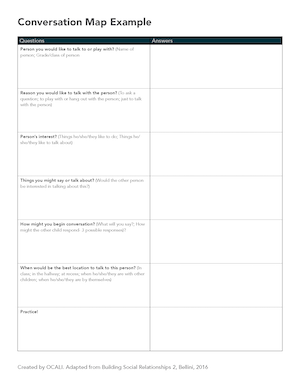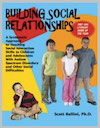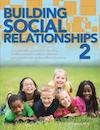Autism Center Grab and Go Resource Gallery of Interventions
Conversation Map
Create Conversation Maps to help individuals who struggle with social interactions with others. Developed by Scott Bellini, Conversation Maps provide a guide to help an individual initiate and maintain an interaction with others. The Conversation Map takes into consideration the perspective and interests of others to support social problem solving. A Conversation Map includes the following steps, which can be modified to meet the developmental needs of the individual:
- Select a child to play with
- Determine reason for playing with child
- Identify other child's interest/s
- Select topic of planned conversation
- Develop scripted initiation and expected responses
- Select best setting to initiate conversation
- Practice

Conversation Maps
Book Suggestions

Building Social Relationships: A Systematic Approach to Teaching Social Interaction Skills
Scott Bellini
This comprehensive and five-step model addresses the need for social programming for children and adolescents with autism spectrum disorders (ASDs) by helping children identify the skills they need to form relationships. Additionally, this resource addresses intervention plans to help children acquire these skills. Instead of offering a single strategy, this book organizes a myriad of social skills strategies and resources currently available. This resource is focused on making it easier for parents and educational professionals to teach social skills and design social skills programs for children with ASD.

Building Social Relationships 2: A Systematic Approach to Teaching Social Interaction Skills to Children and Adolescents on the Autism Spectrum
Scott Bellini
Too often social skill interventions are designed merely as a reaction to problem behaviors. This often results in parents and practitioners "chasing" problem behaviors while failing to systematically teach social skills. Social skills programming should be an essential aspect of every educational and therapeutic program for children and adolescents on the autism spectrum. Unfortunately, few youth on the spectrum are receiving effective social skills programming. Many parents are tremendously concerned about their child's social functioning and their future quality of life. They see their children struggling to build and maintain social relationships. They see them experiencing peer failure, rejection, and relentless bullying on a regular basis. Most importantly, they see their children dealing with intense social anxiety, depression, and social isolation. Not coincidentally, practitioners are often frustrated by the tepid results of their social skills program.
<p.The Building Social Relationships (BSR) program was created to address the need for effective social skills programming. The BSR program is a systematic social skills program that addresses both social cognitive processing and social skill performance. Building Social Relationships-2 (BSR-2) provides readers with a conceptualized framework that will improve their understanding of social functioning in youth on the autism spectrum. The book will teach readers how to assess and teach social skills and activate social cognitive processing in both children and adolescents. BSR-2 contains over 40 instructional strategies and includes a revised version of the Autism Social Skills Profile (ASSP-2), an instrument designed to measure social competence in youth on the spectrum.
Now, more than ever, our field and, more importantly, our children are in desperate need of effective social skills programing. BSR-2 was written based on the belief that we have long undervalued social skill instruction in our schools and clinics and that we have significantly underestimated the social potential of individuals on the spectrum. We don't just need more social skills programming, we need better social skills programming. BSR-2 will guide readers on the path to better programming and improved social outcomes. It will allow parents and practitioners to practice with purpose and to systematically address the social skill and social cognitive needs of youth on the autism spectrum.